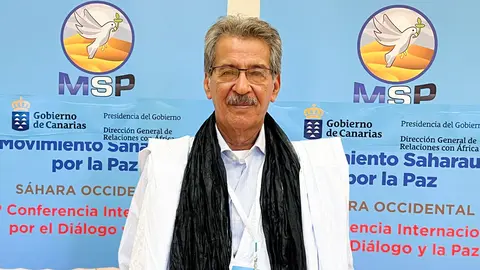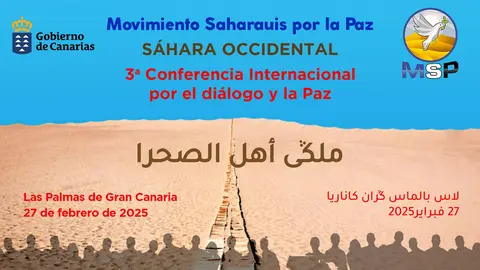For a better future for Western Sahara: commitment and action

The Movement Saharawi for Peace (MSP) organised the 3rd International Conference for Dialogue and Peace at the Centre for Cultural Initiatives of the Caja de Canarias (CICCA) with the aim of promoting a peaceful solution to the dispute over Western Sahara through dialogue and understanding between the parties involved.
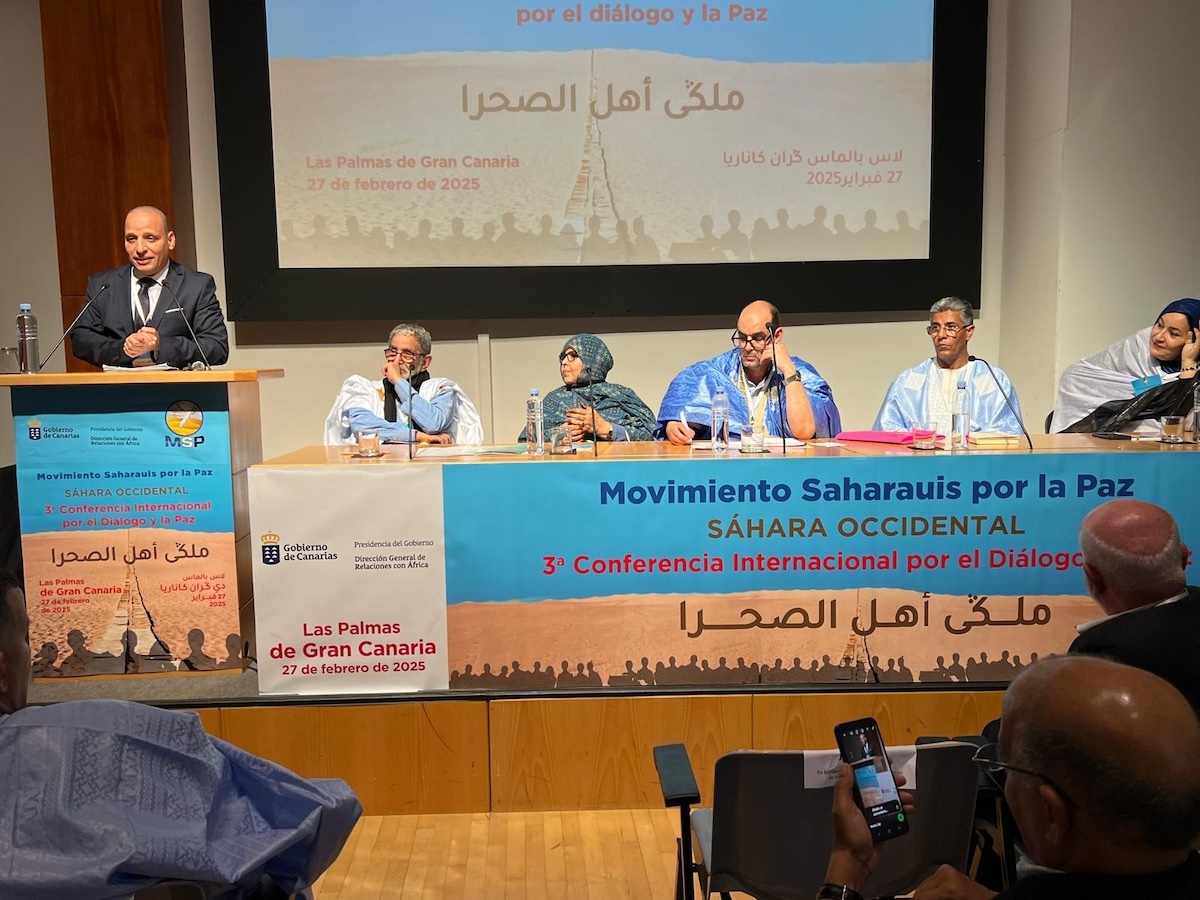
The MSP presents itself as a moderate alternative with regard to the Saharawi question and argues that the most viable solution is autonomy for Western Sahara under Moroccan sovereignty. ‘We have chosen to move away from radicalism and, from a moderate and realistic approach, to opt for a solution in which there are no winners or losers, a political solution for a political problem that must, of necessity, guarantee the fundamental rights of the Saharawi people and their coexistence with Morocco and the other peoples of the Maghreb,’ said Hach Ahmed Bericalla, first secretary of the MSP.

The MSP also demands that the United Nations (UN) involve them in talks on the issue of Western Sahara as they represent the position of many Saharawi affected.
In this sense, the conference served as a stage for the presentation and endorsement of the proposals contained in the Canary Islands Manifesto 2025, which reinforces the commitment to a viable and peaceful solution for the region.
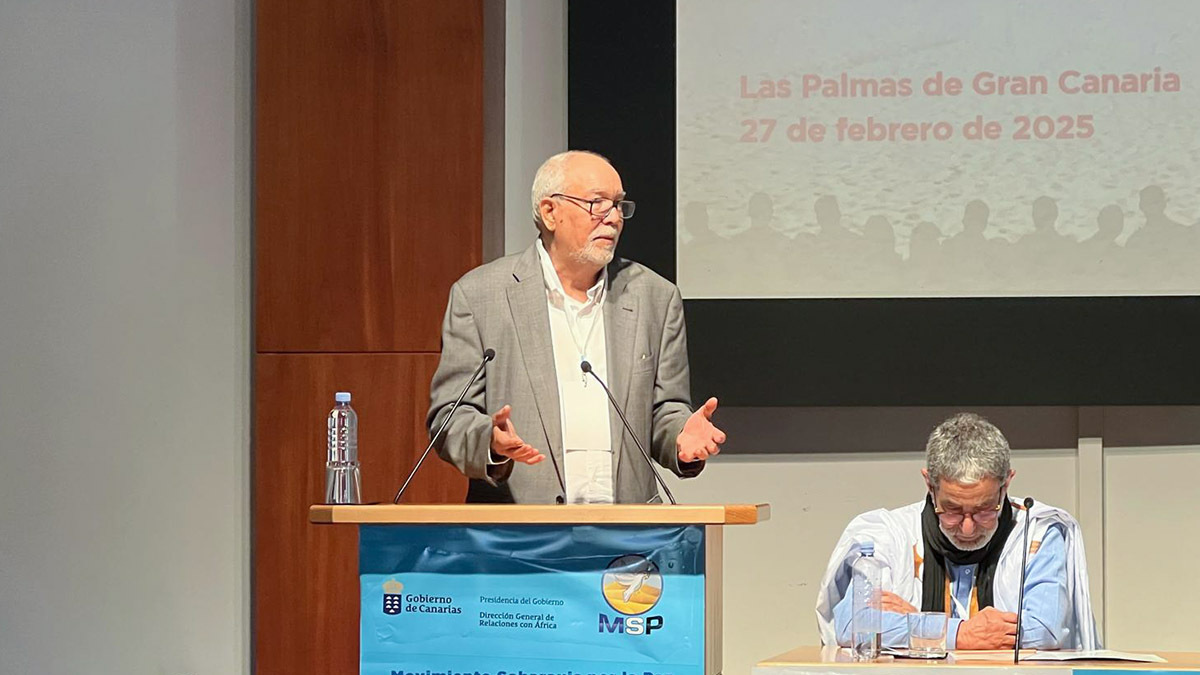
The manifesto emphasises the need to break with the dynamics of suffering and unfulfilled promises that have perpetuated the conflict, calling on the Saharawi community to make courageous decisions that will enable them to build a better future with lasting stability.
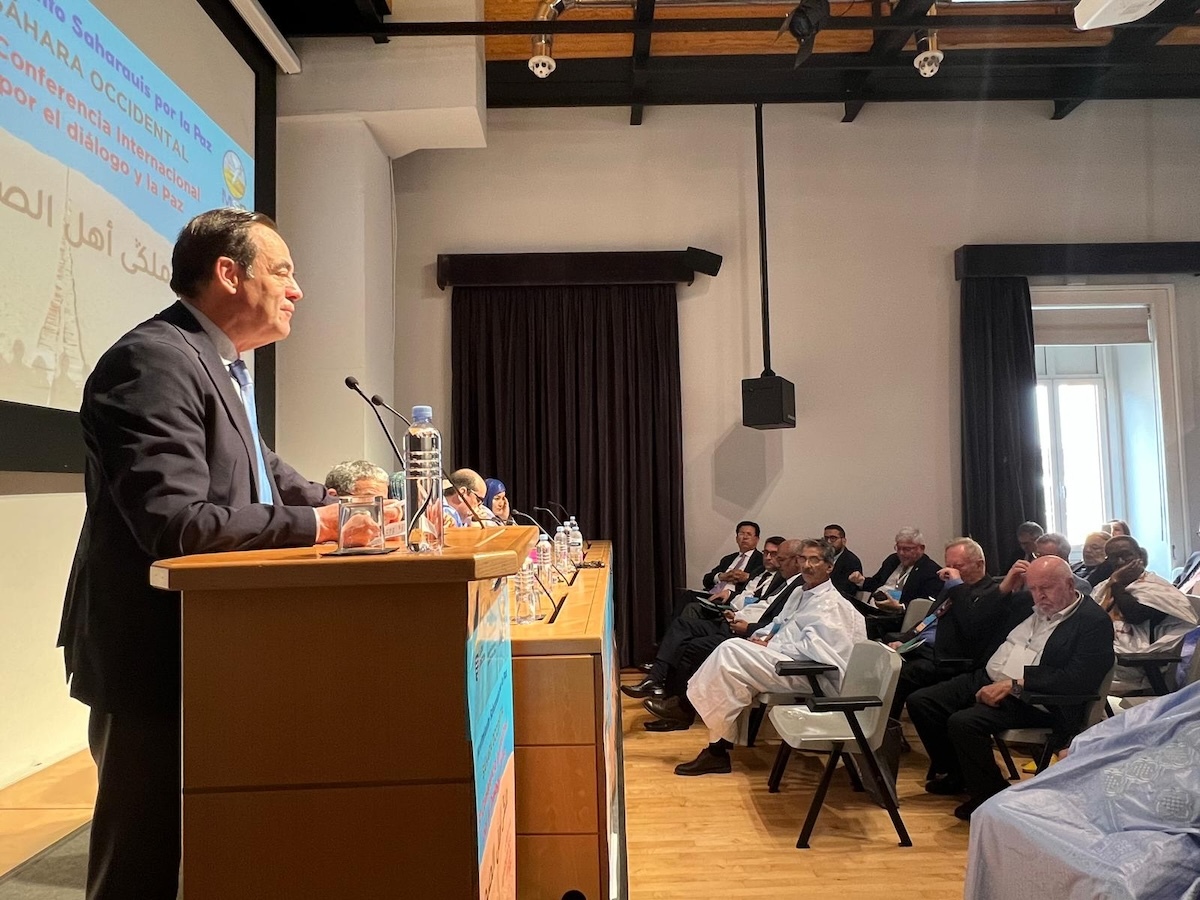
It is about seeking a better future for Western Sahara through commitment and action.
Among the key proposals included in the manifesto, the inclusion of the Polisario Front in the Socialist International as an observer member stands out, which introduces a new dynamic in Saharawi representation and underlines its commitment to a political solution far removed from violence. Likewise, the personal envoy of the UN Secretary General is urged to include the MSP and the Saharawi traditional authority in the negotiation process, recognising their fundamental role in the cohesion and leadership of the Saharawi community.
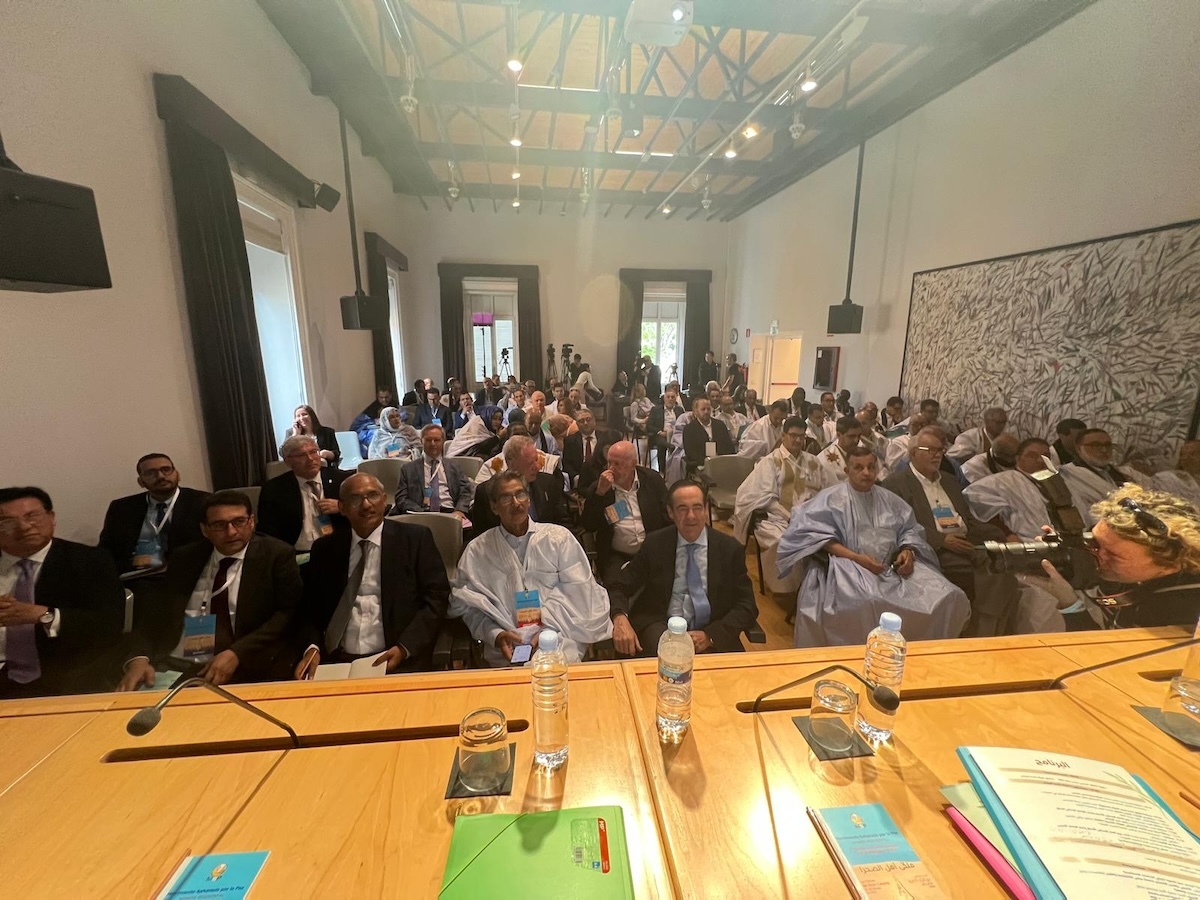
This manifesto also calls on the Spanish government to maintain its position in support of Morocco's autonomy solution, despite the pressure it has received.
The manifesto also criticises the confrontational stance of Algeria and the Polisario Front, which are advocating an independence referendum for the Saharawi people, which has much less support on the international stage, compared to Morocco's proposal for autonomy, which has the support of major powers such as the United States, France, the United Arab Emirates, Israel, Germany and Spain, who consider the Moroccan proposal to be the most serious, credible and realistic way to resolve the Saharawi dispute.
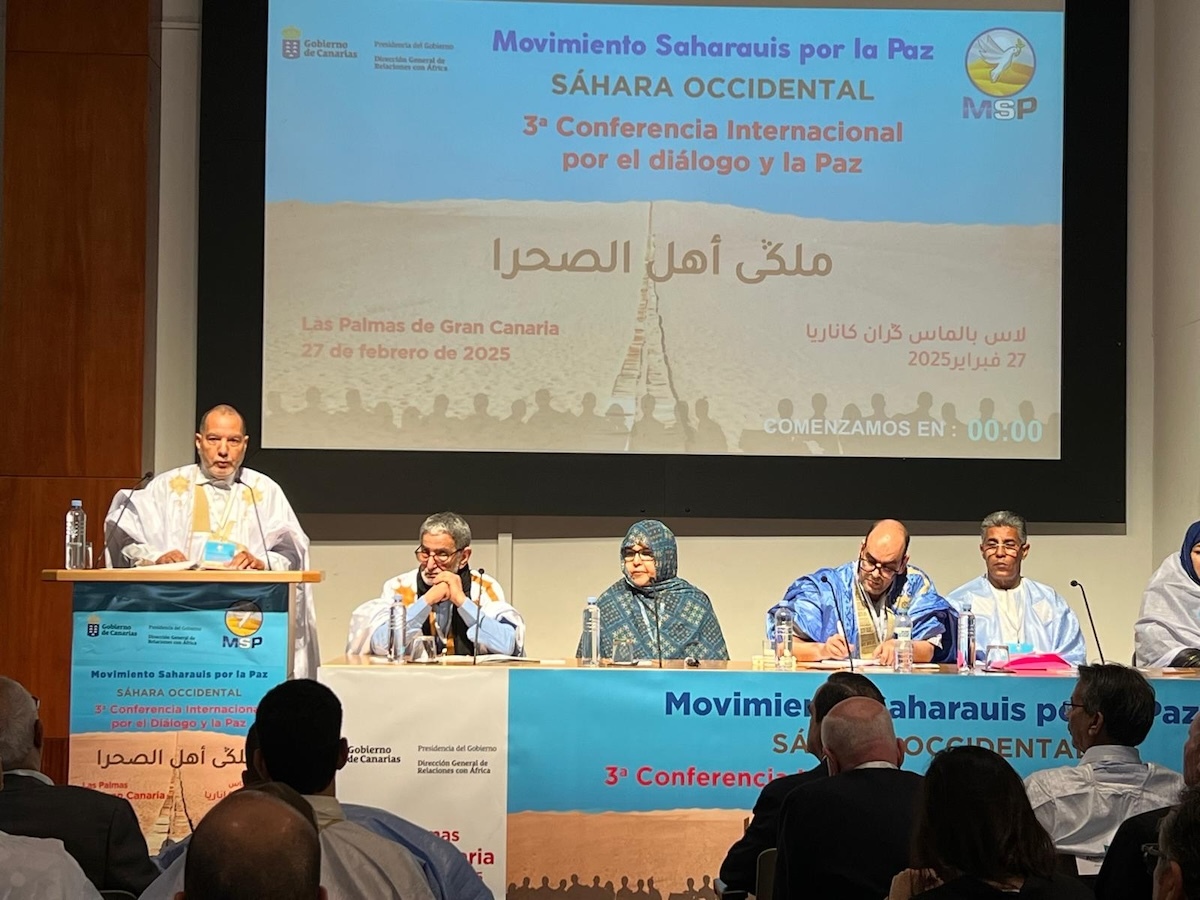
The manifesto is reproduced below:
For a Better Future for the Sahara: Commitment and Action
On a significant day for the Saharawi cause, we have gathered once again in Las Palmas, as we did in 2022, with a clear purpose: to look forward with hope and determination. We are not here to lament the long and difficult road travelled, but to chart a future in which our voice will rise firmly in the face of the challenges we face and harness the power we have in our hands to overcome them.
The future we envisage is one of change and action, a future that allows us to leave behind decades of suffering, uncertainty and unfulfilled promises. We are faced with a historic opportunity to build a better Sahara, designed by and for its people. To this end, we consider it essential to promote concrete mechanisms to advance the resolution of this protracted conflict. We therefore highlight the following action points:
1. Recognition of the Movement Saharawi for Peace (MSP): we celebrate the recent incorporation of the MSP as an observer member of the Socialist International. Unlike the Polisario, the MSP defends a political solution based on consensus and the rejection of violence. We urge the United Nations special envoy to redouble his efforts to make constructive progress and avoid the traditional stagnation in this political process.
2. Inclusion in the Political Process: we urge the UN Secretary General to promote the participation of the Polisario Front and the Saharawi traditional authority, represented by its notables or chiujs. These leaders have historically been guarantors of peace and social cohesion in the Sahara and must play a key role in resolving the conflict.
3. Position of the Spanish Government: we value the maintenance of the position of the Government of Spain, despite internal pressures. Spain's departure from its ‘negative neutrality’ strengthens its role as the main intermediary between the European Union and the Sahara. The EU's active involvement in the resolution of the conflict is a key factor in achieving significant progress.
4. Responsibility of the Spanish opposition: we call on the opposition parties in Spain, especially the Partido Popular, to adopt a constructive stance and stop exploiting the Saharawi conflict for electoral purposes. The use of this cause for internal purposes weakens efforts to find a solution and perpetuates the suffering of the Saharawi people.
5. Appeal to the Polisario: we warn of the harmful effects of the Polisario's persistence in an intransigent position, which has led to the breakdown of the ceasefire and a war scenario that harms the Saharawi population. We demand that its leaders reverse this situation and restore the ceasefire to avoid new victims.
6. Family reunification and social development: we urge the search for a solution that allows the reunification of Saharawi families and guarantees dignified living conditions in their own land. The autonomy proposal represents the starting point for a new era of peace and prosperity.
Today we face a crucial decision: to move forward or to go backwards; to build a future of unity and hope or to remain trapped in a past of fear and division. The history of the Saharawi people is a history of struggle against adversity, of constant improvement. It is time to leave behind obsolete and dictatorial leaderships and build a future based on dialogue and progress.
There is still time. Time to put an end to this tragedy before it ends us. The time has come for commitment, change and action.

